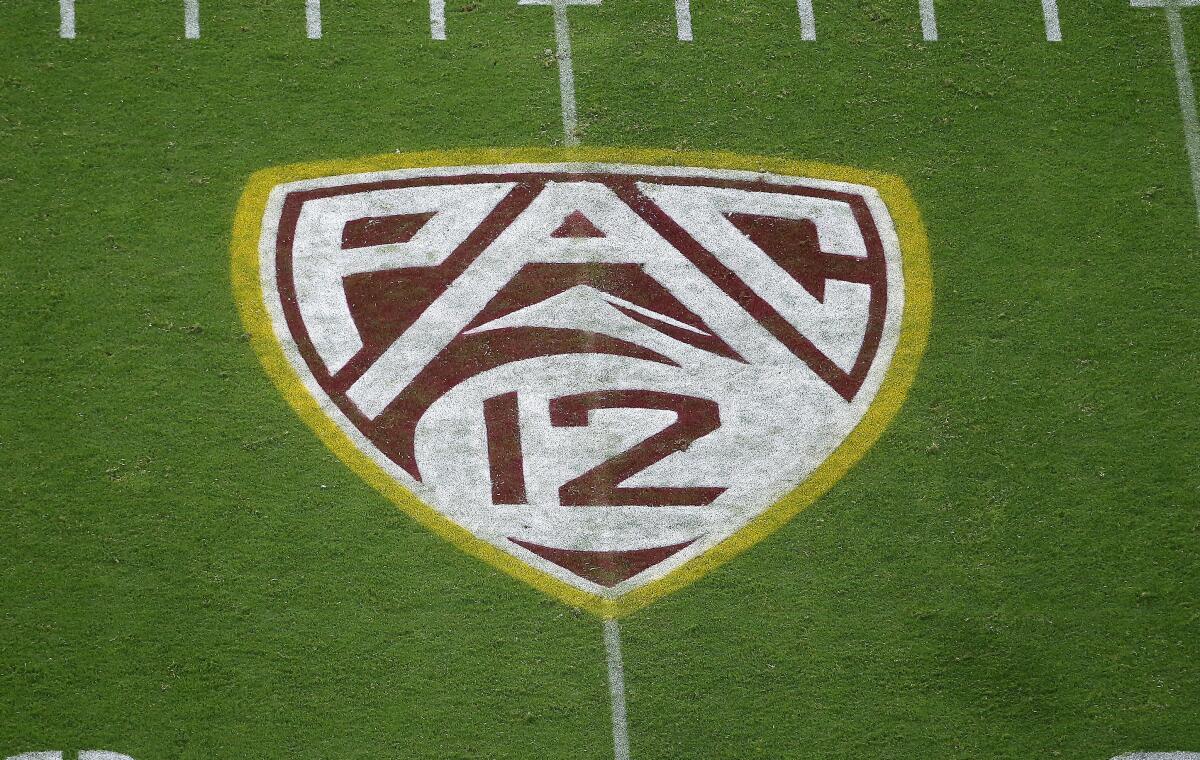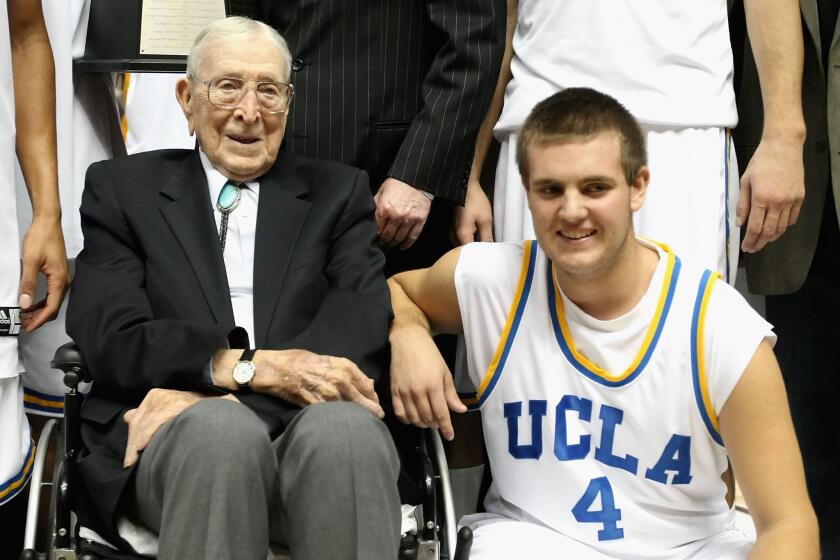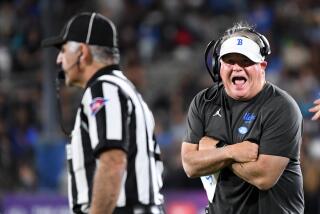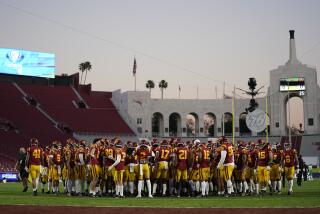Member of Pac-12’s COVID-19 advisory committee ‘very confident’ in athlete safety

Like a coaching staff fine-tuning a game plan, the Pac-12 Conference’s COVID-19 medical advisory committee is finalizing its suggested protocols as athletes prepare to return to campuses for voluntary workouts.
The advisory committee, comprising sports medicine physicians and infectious disease experts from every school in the conference, plans to present its suggestions before June 15, the earliest that athletes will be allowed to come back on campus.
UCLA and USC have not announced when they will allow their athletes to return as they wait for Los Angeles County officials to move into a more lenient phase of their reopening plans. But one member of the Pac-12 advisory committee said Friday that adequate safeguards should be in place by the time that happens.
“I feel very confident that the plan that we’ll come up will help keep athletes and staff members, coaches, facility members and students safe,” said Dr. Annabelle de St. Maurice, a UCLA assistant professor of pediatrics in the division of infectious diseases. De St. Maurice cited the collective expertise of a committee that also includes David McAllister, an orthopedic surgeon who is head team physician for the Lakers and associate head team physician for the UCLA athletic department, as the reason for her confidence in its plan.
UCLA football players and coaches take part in a video calling for change following the death of George Floyd.
Pac-12 Commissioner Larry Scott has said that all athletes returning to campus would receive both diagnostic and antibody tests to determine their COVID-19 status and whether they might already have acquired some protection against the disease. De St. Maurice said protocols are being developed for athletes who test positive upon their return to campus as well as once workouts and practices have resumed.
UCLA coach Chip Kelly has said his team would need about six weeks of preparations before opening its season, meaning the Bruins would need to start workouts around July 18 considering their opener against New Mexico State is scheduled for Aug. 29 at the Rose Bowl.
But might the positive test of one or more players put the entire team at risk of shutting down practice?
School officials would have to determine who was at risk of having contracted the disease from a positive teammate, de St. Maurice said, noting that L.A. County currently defines contact as having been within six feet of someone for at least 15 minutes.
Next would come the isolation of those possibly infected and continued testing.
On the 10-year anniversary of his death, UCLA basketball coach John Wooden remains a legendary figure to so many, especially his family.
In its efforts to prevent the spread of the novel coronavirus, the committee is developing recommendations for disinfecting surfaces and expanded spacing in what have typically been cramped confines inside locker rooms, weight rooms and dining facilities.
“As you know, we are still learning a lot about this virus,” de St. Maurice said. “The entire L.A. community, the U.S., the world even is just starting a reset related to COVID, so everyone is trying to come up with the best guidance they have to make sure that people in the community, on campus, in the hospital, that everyone is safe.”
That includes a UCLA coaching staff that could be at increased risk based on its age. Quarterbacks coach Dana Bible is 66, defensive coordinator Jerry Azzinaro is 61, inside linebackers coach Don Pellum is 58, Kelly is 57 and defensive backs coach Brian Norwood is 54.
“We are considering all risk factors of coaches, staff, faculty and students to make sure that we think about protecting everyone, including those who are high risk,” de St. Maurice said.
More to Read
Go beyond the scoreboard
Get the latest on L.A.'s teams in the daily Sports Report newsletter.
You may occasionally receive promotional content from the Los Angeles Times.








